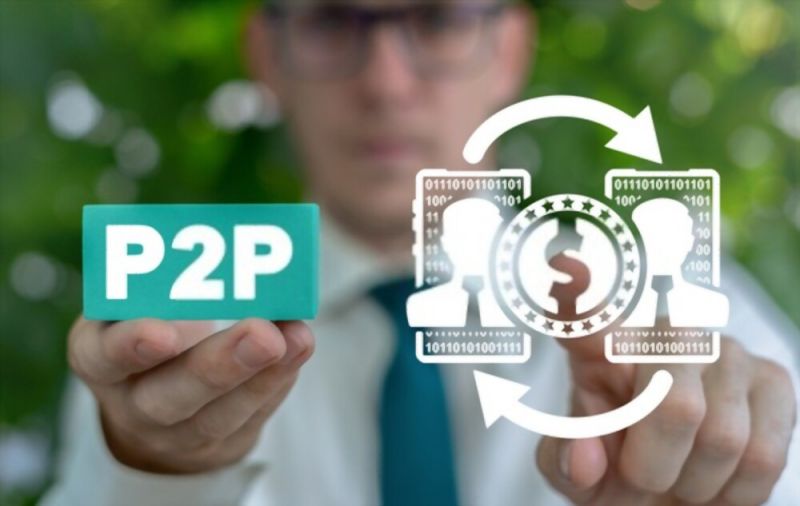Cryptocurrency exchanges can be considered the Prometheus of the blockchain world. The blockchain to technology and cryptocurrency which was largely confined to high-power systems had now been brought down to the common man. Instead of investing in computer systems that consume a lot of processing power and electricity, people could not afford to buy crypto assets from cryptocurrency exchanges.
In all of this, crypto exchanges also presented one of the most vulnerable points in the crypto/blockchain ecosystems. It is because of the degree of centralization present in the cryptocurrency exchanges. It is quite known that the usual centralized crypto exchanges hold access to the private keys of the customers.
It is also to be noted that most of the lapses in security with respect to crypto/blockchain were in cryptocurrency exchanges. Considering this dubious distinction, there was a need to completely decentralize anything and everything involving crypto.
This situation necessitated the need for completely decentralized cryptocurrency exchanges. Decentralized cryptocurrency exchange, also known as P2P cryptocurrency exchange, is maintained and operated exclusively on platforms powered by the blockchain.
What makes P2P cryptocurrency exchange different?
A P2P cryptocurrency exchange is completely decentralized. It does not involve any intermediaries to execute transactions. On a traditional centralized exchange, there is a need for intermediaries to execute transactions and trade. On a P2P exchange, no third parties are involved in overseeing the transactions.
A brief history of P2P exchanges
The P2P exchange came into prominence and was prevalent in 2014 when cryptocurrency was taking devastating hits in the form of scams. This led to a lot of countries banning or denying the use of cryptocurrency. There was a need for the crypto community to undo these tarnishes and create a new and refreshed image for cryptocurrency.
This thought culminated in the creation of decentralized cryptocurrency exchanges where two parties can exchange money instead of technically “trading” their crypto cash.
How does trading on a P2P exchange work?
To understand the difference with the P2P cryptocurrency exchange, it is important to understand how a traditional crypto exchange works. Simply, a person can place an order, and the exchange itself takes care to execute the trade with the existing exchange rate.
Therefore, for a considerable stretch of time, the exchange holds control over the crypto fund.
Conversely, in a decentralized cryptocurrency exchange, a person who intends to send a crypto coin will post an order containing the amount and the price. A common ledger collects all the pieces of information and it is referred to as the order book. A user who would like to purchase a specific crypto coin will look for such selling offers that are available on the other book. If they find something that is congenial, they will initiate the exchange process. The buying and selling orders are matched.
In a centralized exchange, the exchange handles the transactions and it acts as an intermediary to establish trust. In a P2P exchange, however, an escrow governed by a smart contract is in place to ensure trust. Once the escrow has confirmed the deposit of the funds, it releases the crypto assets on either side ensuring that there are no compromises in the fulfillment of the transaction.
The only cost incurred in the process of a decentralized crypto exchange transaction is the guest fee or the network charge levied by the blockchain to execute the transaction.
Why go for a P2P exchange?
A P2P exchange presents a lot of benefits.
The foremost and the most obvious benefit of a peer-to-peer crypto exchange is the enhanced security it brings to the transactions. In a P2P exchange, every transaction happens on the public ledger of the blockchain. Therefore, it completely eliminates the need to worry about the authenticity of the counterparties. In addition, the KYC/AML details do not exist outside the blockchain. This considerably minimizes the chances of identity theft and the associated fraud.
Since all the transactions happen on the public ledger, there is almost zero chance of your details being hacked or your transactions being susceptible to fraud. All the records on the blockchain remain to be distributed all across the network with an inherent encryption mechanism. This makes the entire system both traceable and secure. The traceability is open only when the authentic parties need access.
We often talk about the blockchain eliminating the need for intermediaries. The reason there is so much stress on this particular part is that intermediaries almost always translate into added costs. The involvement of intermediaries increases the operation/transaction fee. However, in a P2P exchange, the role of the intermediary is effectively taken care of by the smart contracts. This brings down the cost of operations to almost zero. Even if there is a small fee levied, it remains relatively lower than any centralized exchange.
Centralized exchange, in essence, is a financial business. Therefore, that business is under the jurisdiction of some legal system. Contrary to this, a P2P cryptocurrency exchange is completely native to the blockchain. Therefore, it opens up opportunities for any person in any corner of the world to execute transactions. The P2P cryptocurrency exchange is one of the most realistic manifestations of global finance without necessitating any centralized HD like a bank.
P2P exchanges ensure top-notch privacy. Since there are no third-party interventions, the possibility of leakage of private information is almost nil. The exchange directly connects buyers and sellers, in addition, the key attributes of the blockchain technology like distribution, immutability, and encryption ensure that there are no lapses with respect to privacy.
The challenges
On paper, it seems that the P2P cryptocurrency exchange is the holy grail that the crypto and the blockchain world were looking for. However, there are a few limitations that hamper wide scale adoption of P2P crypto exchanges.
The most important of them is the lack of liquidity. Liquidity is one of the most important attributes of any cryptocurrency exchange and is a measure of the volume/probability of transactions being executed. In most cases, centralized cryptocurrency exchanges can emulate transactions within bot accounts to ensure that liquidity gets going. They can also consider taking him with another exchange to benefit from their magnitude of liquidity.
In a P2P exchange, however, liquidity will have to be provided by liquidity pools, which is, in essence, a repository of multiple crypto tokens guarded by a smart contract. This might open up opportunities for investors to earn from alternate methods like yield farming. However, establishing liquidity, especially for a relatively new cryptocurrency exchange is quite difficult and challenging.
If some of the most renowned names in the crypto exchange world like Binance have gone ahead to open their own P2P exchange, it means that this business model is here to stay.
Conclusion
The blockchain technology in itself is quite nascent and it would take some time before its manifestations evolve. The P2P cryptocurrency exchange is one among them. There will be a time when the P2P crypto exchange would be the most preferred method for crypto trading.
If you are one of those crypto entrepreneurs who would like to benefit from the trading method of the future, you will need to build your own P2P trading software. All you need to do is get in touch with a P2P exchange development company and discuss the possibilities. With your expertise, the extent of customization, and security, it is quite possible that you can evolve the best P2P crypto exchange ever and, for all you know, disrupt the market!




